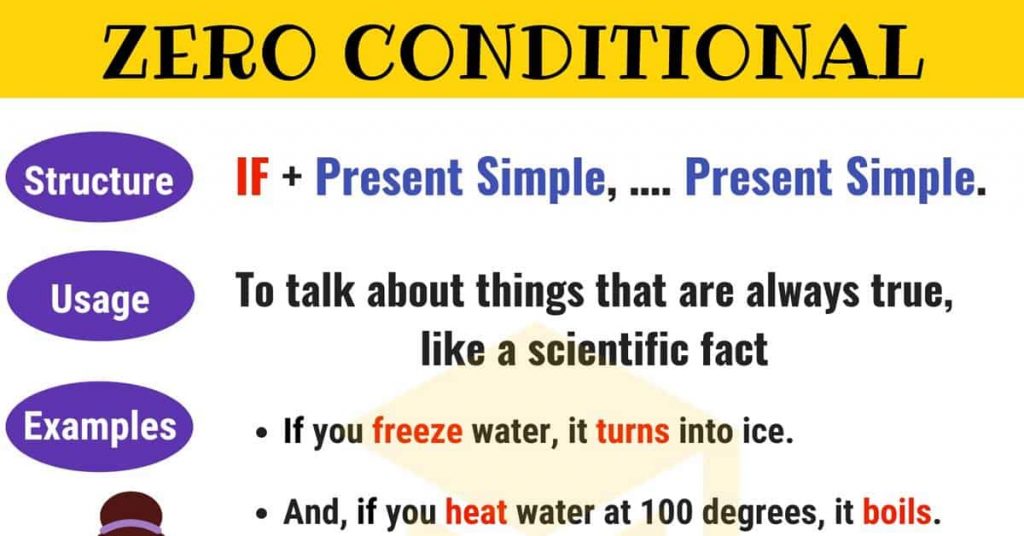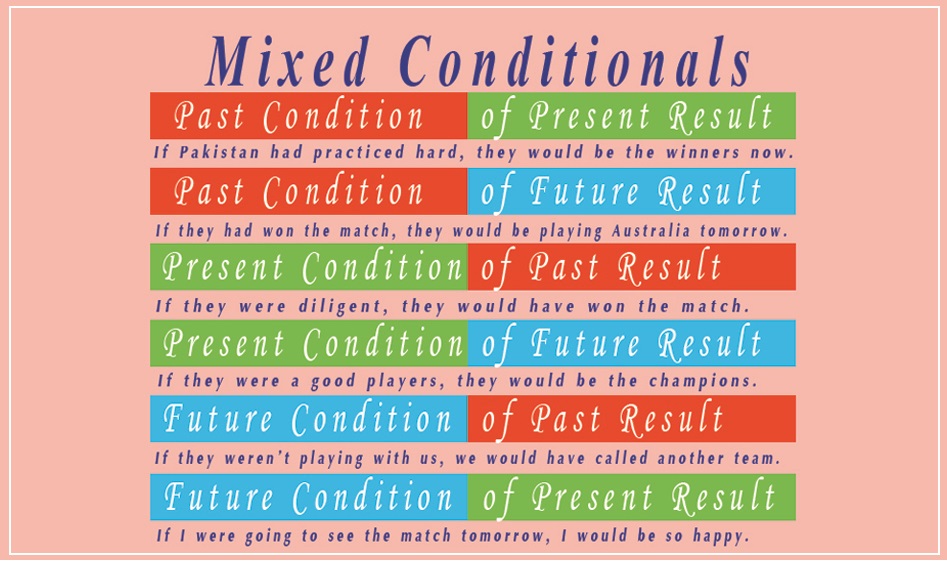Before we deal with mixed condfditionals let’s first do a quick review of the regular conditionals
1. FIRST CONDITIONAL: We use sentences in the first conditional to talk about things that might happen in the future or right now and their consequences.
Such sentences are formed by using one of the present tenses with the clause that begins with ‘if’ and any future tense or modal verb.
- If you eat all the pies then you’ll get fat.
2. SECOND CONDITIONAL: To talk about unlikely or hypothetical situations in the present or future we use the second conditional
- If you worked harder, you’d have more success.
To form this tense we use the simple or continuous in the past tense and then ‘could’ ‘would’ ‘might’ + the infitive in the remaining clause.
3. THIRD CONDITIONAL: In advanced English grammar, you use the third conditional to talk about a hypothetical situation in the past.
- If Hitler hadn’t invaded Russia, he might have won the war.
To use this tense you need the past perfect in simple or continuous form while in the ‘if’ clause we use ‘would have’ ‘could have’ ‘might have’ then a past participle.
4: IF CLAUSES – WAS/WERE: When speaking and using the following subjects – I, she, he, it – you can choose between ‘was’ and ‘were’. Although many textbooks claim that you always use ‘were’ with ‘you’ it is possible to hear native speakers say ‘if I was you.’
- If I were you, I wouldn’t eat that kebab. You’re fat enough already.

Mixed conditionals
Mixed conditionals are used when we want to refer to both the present and the past.
They are mixed because as you can see in the explanations above – the first, second and third conditionals have very specific time uses. Therefore, if you want to combine the past and present you need a mixed conditional.
- We wouldn’t be so hungry if we had brough some sandwiches. (this combines both second and third conditional)
- I would have graduated by now if I didn’t have to look after my kids each day. (this combines third conditional with second conditional)
Phrases and vocabulary that substiutue or modify conditionals.
Inverting ‘had’ + subject in third conditional
You can change the position of ‘had’ and the subject and still say the same thing.
- Had I slept more, I wouldn’t have been so irritable.
Supposing / suppose
Supposing / suppose is usually used at the start of a sentence and conveys the conditional.
- Suppose he offers you less money…would you be offended?
Even
When you use ‘even’ you basically add more emphasis to what you were saying.
- Even if he was the last man on earth I wouldn’t marry him.
Whether
‘Whether’ can be used in conjunction with subject + verb + or not to convey the sense that something is a fact in both cases. You can also use ‘whether or not’
- I’m going to move in with my boyfriend whether you give your consent or not.
- Whether or not you consent, I’m going to live with my boyfriend.
More phrases
The following phrases can also be used to transmit conditionality and to substitute ‘if’.
- Provided (‘that’ is optional)
- Providing (‘that’ is optional)
- On condition (‘that’ is optional)
- As long as
- So long as
- I’ll lend you the money as long as you pay me back.
- I’ll have the baby provided that you pay for his or her education.

